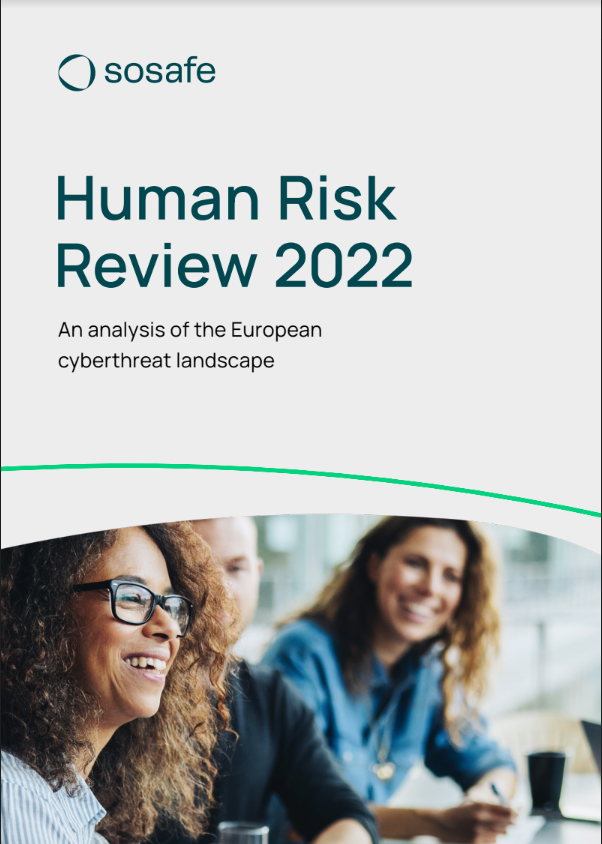How to protect against 'endemic' Log4j vulnerabilities
A US government report details a series of recommendations to help counter the Log4Shell flaw in the long term


The US Department of Homeland Security has released the Cyber Safety Review Board’s (CSRB) report into Log4j vulnerabilities, which details actionable recommendations for government and industry.
The CSRB is a new public-private initiative within CISA that aims to bring together government and industry leaders to review and assess significant cyber security events and threats.
The board’s first report addresses the “continued risk” posed by the Log4Shell vulnerability in the widely used Log4j open-source software library, discovered in late 2021. It is one of the most prominent cyber security threats of recent years.
Described as “one of the most serious vulnerabilities discovered in recent years”, the CSRB’s recommendations focus on driving better security in software products, as well as enhancing organizations’ response abilities.
“The CSRB’s first-of-its-kind review has provided us – government and industry alike – with clear, actionable recommendations that DHS will help implement to strengthen our cyber resilience and advance the public-private partnership that is so vital to our collective security,” commented Secretary of Homeland Security Alejandro Mayorkas, who delivered the report to President Biden.
Grabbling with the Log4Shell vulnerability
First disclosed on 9 December 2021, Log4Shell is a zero-day remote code execution vulnerability in Java logger Log4j, which was awarded a 10/10 criticality rating by CISA.
In a nutshell, the flaw enables attackers to submit a specially crafted request to a vulnerable system, causing it to execute arbitrary code. As a result, the attackers can take full control of the affected system from a remote location.
Sign up today and you will receive a free copy of our Future Focus 2025 report - the leading guidance on AI, cybersecurity and other IT challenges as per 700+ senior executives
The vulnerability was found to have been exploited by coin miners, remote access trojans (RATs), botnets, ransomware, and advanced persistent threats (APTs)
According to CISA, cyber threat actors have continued to exploit the vulnerability in VMware Horizon and Unified Access Gateway (UAG) servers to obtain initial access to organizations that did not apply available patches or workarounds.
Log4Shell: Recommendations and best practice
The CSRB engaged with nearly 80 organizations and key individuals to gather insights into the Log4j event and develop actionable recommendations for future incidents.
The 19 recommendations outlined in the report have been split into four categories; the first focuses on addressing the continued risks and states that both organizations and government bodies should be prepared to apply vigilance to Log4j vulnerabilities “for the long term”.
RELATED RESOURCE

The second outlines recommendations for driving best practices for security hygiene, advising adoption of industry-accepted best practices and standards for vulnerability management. That includes investment in security capabilities and development of response programs and practices.
The third category advises organizations on building a better software ecosystem to move to a proactive model of vulnerability management, including increasing investments in open source software security, as well as training software developers in secure software development.
Lastly, the fourth group notes that investing in new systems and groups for the future will be essential in securing the US’ infrastructure and digital resilience in the long term.
“Never before have industry and government cyber leaders come together in this way to review serious incidents, identify what happened, and advise the entire community on how we can do better in the future,” said Robert Silvers, CSRB Chair and DHS Under Secretary for Policy.
“Our review of Log4j produced recommendations that we are confident can drive change and improve cyber security.”
Dan is a freelance writer and regular contributor to ChannelPro, covering the latest news stories across the IT, technology, and channel landscapes. Topics regularly cover cloud technologies, cyber security, software and operating system guides, and the latest mergers and acquisitions.
A journalism graduate from Leeds Beckett University, he combines a passion for the written word with a keen interest in the latest technology and its influence in an increasingly connected world.
He started writing for ChannelPro back in 2016, focusing on a mixture of news and technology guides, before becoming a regular contributor to ITPro. Elsewhere, he has previously written news and features across a range of other topics, including sport, music, and general news.
-
 Gender diversity improvements could be the key to tackling the UK's AI skills shortage
Gender diversity improvements could be the key to tackling the UK's AI skills shortageNews Encouraging more women to pursue tech careers could plug huge gaps in the AI workforce
-
 Researchers claim Salt Typhoon masterminds learned their trade at Cisco Network Academy
Researchers claim Salt Typhoon masterminds learned their trade at Cisco Network AcademyNews The Salt Typhoon hacker group has targeted telecoms operators and US National Guard networks in recent years
-
 Google pays largest-ever bug bounty worth £500,000
Google pays largest-ever bug bounty worth £500,000News The company remained tight-lipped over the exploit itself, but speculation is possible given its publicly available rewards breakdown
-
 OpenSSL 3.0 vulnerability: Patch released for security scare
OpenSSL 3.0 vulnerability: Patch released for security scareNews The severity has been downgraded from 'critical' to 'high' and comparisons to Heartbleed have been quashed
-
 Hacker steals $566 million from Binance Bridge using proof-forgery exploit
Hacker steals $566 million from Binance Bridge using proof-forgery exploitNews An exploit discovered in the exchange platform's proof verifier let the hacker take 2m BNB without raising alarm bells
-
 CISA issues fresh orders to polish security vulnerability detection in federal agencies
CISA issues fresh orders to polish security vulnerability detection in federal agenciesNews The move marks the latest step in the cyber security authority's ongoing ambition to minimise the government's exposure to attacks
-
 Mozilla patches high-severity security flaws in new ‘speedy’ Firefox release
Mozilla patches high-severity security flaws in new ‘speedy’ Firefox releaseNews Numerous vulnerabilities across Mozilla's products could potentially lead to code execution and system takeover
-
 WordPress plugin vulnerability leaves sites open to total takeover
WordPress plugin vulnerability leaves sites open to total takeoverNews Customers on WordFence's paid tiers will get protection from the WPGate exploit right away, but those on the free-tier face a 30-day delay
-
 Numerous HP business laptops and desktops vulnerable to publicly disclosed security bugs
Numerous HP business laptops and desktops vulnerable to publicly disclosed security bugsNews Researchers revealed the details of the six vulnerabilities at Black Hat in August but many laptops, desktops, and workstations remain vulnerable
-
 HP patches high-severity security flaw in its own support tool
HP patches high-severity security flaw in its own support toolNews The application that's installed in every HP desktop and notebook was allowing hackers to elevate privileges through a DLL hijacking vulnerability
